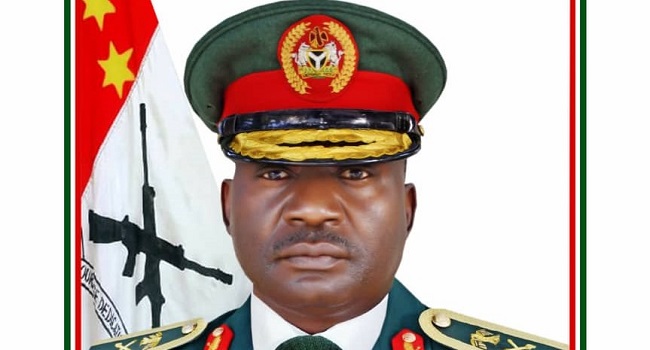Tensions have flared between Nigeria and Canada following the Canadian embassy’s refusal to grant visas to Chief of Defense Staff, General Christopher Musa, and other senior military officers. The visa denials have raised concerns over diplomatic relations, fairness in visa issuance, and the treatment of Nigerian officials on the global stage.
Speaking at an event in Abuja, Nigeria’s National Security Adviser (NSA), Nuhu Ribadu, did not mince words in his reaction to the decision, stating, “They can go to hell.” His strong remarks reflect the frustration within Nigeria’s leadership over what they perceive as an unjustified refusal of entry to officials invited for an international event honoring military veterans.
General Musa, who was one of those affected, shared his disappointment, explaining that the invitation was extended to him and his team, yet while some officers were granted visas, others were inexplicably denied. “Every disappointment is a blessing. I was meant to be in Canada for an event to honor our veterans—those injured in battle. We were invited along with our team, but while half of us got visas, the other half was denied. It’s very disappointing,” he stated.

The Nigerian government views the visa denial as a lack of respect for its military leadership and has expressed concerns about the broader implications for diplomatic relations between the two nations. The controversy has reignited debates about how Nigerian officials and citizens are treated by foreign embassies, with some calling for a review of Nigeria’s visa policies toward Canadian officials.
Canada’s Stricter Immigration Policies
The situation arises amid Canada’s tightening of immigration regulations, which grants immigration officers broader powers to revoke or deny temporary resident visas (TRVs), electronic travel authorizations (eTAs), and other entry permits under specific circumstances. These new rules, which took effect on January 31, 2025, aim to strengthen border security and ensure that visa programs remain credible and effective.
According to the Canadian government, reasons for visa refusals may include:
A change in the applicant’s status or circumstances, making them ineligible (e.g., providing false information or having a criminal history).
Concerns that the applicant may not leave Canada at the end of their permitted stay.
Issues related to lost, stolen, or abandoned visa documents.
The Nigerian government, however, has criticized the application of these policies, arguing that denying visas to its top military officers—who were invited for an official event—undermines diplomatic relations and international cooperation

Diplomatic Fallout and Future Implications
Nigeria’s displeasure over the visa denials has fueled discussions about the country’s standing in global diplomacy and the need for reciprocal policies. Some officials have suggested that Nigeria should reassess its visa policy for Canadian officials and citizens, while others have called for diplomatic engagement to resolve the matter.
This incident is not the first time Nigerian officials and citizens have faced challenges in obtaining visas from Western nations. In the past, similar issues have led to diplomatic tensions and raised concerns over perceived bias in visa processing for African nations.
As both countries navigate this diplomatic hurdle, it remains to be seen whether Canada will provide further clarifications on the reasons for the visa denials or if Nigeria will take retaliatory measures in response to the incident.



